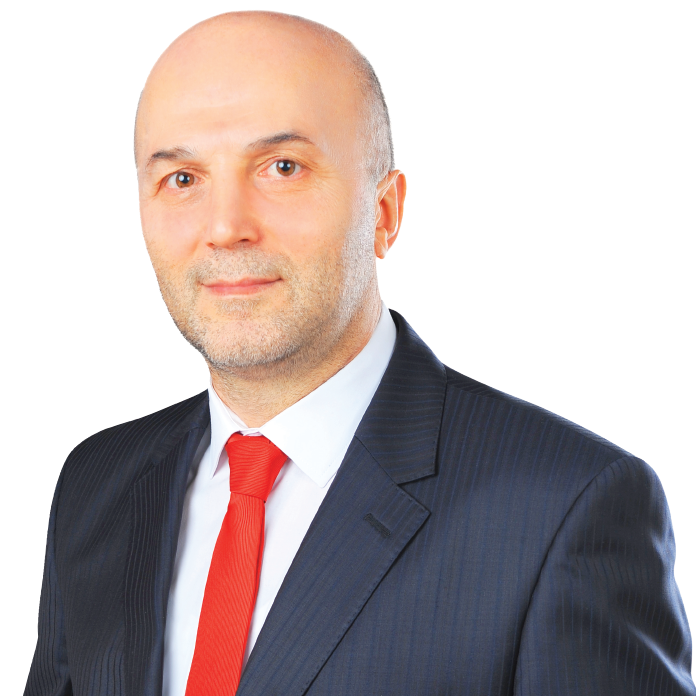
- 22.12.2024, Sunday
- 17:54
What’s behind Erdogan's change at the helm of Turkey’s Central Bank?
11:1725/03/2021, Thursday
U: 25/03/2021, Thursday
Next article
Ahmet Ulusoy

As everyone now knows, Turkish President Recep Tayyip Erdogan on Saturday unexpectedly sacked the country’s Central Bank governor that was appointed only four and half months ago, and replaced him with Professor Sahap Kavcıoglu. And as expected, markets were rattled in the aftermath of that decision: the stock market went down, with exchange rates and gold prices quickly soaring.Following this move, foreign financial institutions immediately sprung into action and intervened in the markets, show
As everyone now knows, Turkish President Recep Tayyip Erdogan on Saturday unexpectedly sacked the country’s Central Bank governor that was appointed only four and half months ago, and replaced him with Professor Sahap Kavcıoglu. And as expected, markets were rattled in the aftermath of that decision: the stock market went down, with exchange rates and gold prices quickly soaring.
Following this move, foreign financial institutions immediately sprung into action and intervened in the markets, showing that they are capable of turning all economic forecasts and perceptions on their head.
***
In fact, this intervention just goes to show that those who manage the Central Bank have acted independently. Contrary to the president's views on the correlation between interest and inflation, the Central Bank Management's efforts to curb inflation by increasing interest rates above market expectations is clear evidence that they had complete autonomy. It is also no secret that the interest rate decisions taken by Ağbal and the policy board did not have the president’s seal of approval.
We need to accept that the frontload interest interventions that have been conducted over the past 132 days were carried out at the expense of real sector costs.
As the Central Bank hiked interest rates from 10.25 to 19.00 points within a short span, it made Turkey the highest interest-paying country among all OECD members.
***
Despite the crisis brought on by the pandemic, Turkey managed to be one of only a handful of countries to report growth in 2020.
This is the result of the expansionist policies funded by public banks and the treasury which have so far been met with nothing but criticism.
Today, and in sharp contrast with these polices, the market is going through a turbulent phase due to four and half months of high interest rates.
In other words, due to these tight monetary and financial policies, we’ve set out to meet the 5 percent growth target in 2021 at a disadvantage.
The government does not only have to meet the expectations of international financial circles, but is also responsible for securing the welfare of 83 million Turks. It is with this responsibility in mind that the government has intervened.
***
Now let’s try and convey what sort of developments we should look out for in the upcoming period.
What awaits Turkey is a period that promises to be tougher than anything it has ever faced before.
Let's look at it this way: for a country with a foreign debt of $435 billion, a foreign debt service of nearly $100 billion, a current account deficit of $37 billion, it is clear that any increase in the dollar exchange rate will result in a more significant cost for the Turkish lira. Meanwhile, any increase in costs due to manufacturing dependency on imports will further feed inflation.
It is a fact that high interest rates result in an economic burden on both real sector production and inflation.
We should not overlook the increased interest costs engendered by high interest rates on the Treasury's borrowing, and therefore on the budget.
In other words, market actors are faced with the difficult task of trying to stay afloat and successfully navigate the economic management process against both high interest and high exchange rates.
***
The statements made by the newly appointed Central Bank governor, Turkey’s minister of Treasury and finally Finance and AK Party Vice-President Canikli that stressed compliance with free market rules and increasing economic stability, transparency and predictability, all reflect the determination of the government.
What is most upsetting about all this is that society’s energy is being squandered on interest and foreign currency instead of obtaining much needed income (employment) in order to meet the needs of the population as well as that of goods and service production.
We also need to acknowledge that high interest and exchange rates are seriously overburdening all other economic variables.
In fact, had more reasonable rate hikes been enforced instead of frontload ones, much securer steps could have been taken to achieve economic stability with the momentum afforded by the announced reforms. Yet sadly, interest rates were set with a mindset that was more royalist than the king, thus it all came crashing down.
***
In a nutshell, Turkey needs to establish a transparent and predictable economic body and not rattle market actors so that it doesn’t lose precious time before reaching economic stability.
#Erdogan
#Turkey
#central bank
#Naci Ağbal
#Şahap Kavcıoğlu
LEGAL NOTICE
The BIST name and logo are protected under the "Protected Trademark Certificate" and cannot be used, quoted, or altered without permission.All rights to the information disclosed under the BIST name are entirely owned by BIST and cannot be republished. Market data is provided by iDealdata Financial Technologies Inc. BIST stock data is delayed by 15 minutes.
